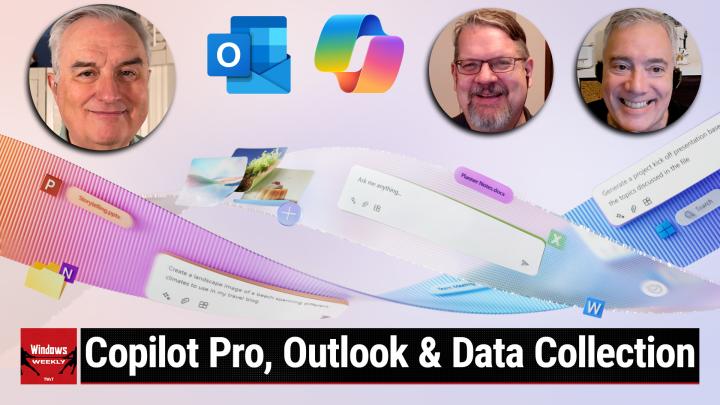Microsoft Outlook Has Morphed into a Targeted Ad Tool
AI-created, human-edited.
New Outlook Web App Blasted as "Surveillance Tool"
The Windows Weekly podcast recently featured an in-depth debate around Microsoft Outlook and targeted advertising practices by Big Tech companies like Microsoft, Google, and Facebook. Hosted by tech experts Leo Laporte, Paul Thurrott, and Richard Campbell, the lively discussion dove into the news that Microsoft's new Outlook web app is under fire in the EU for serving as a "surveillance tool for targeted advertising."
The controversy stems from new regulations in the EU forcing tech companies to disclose more information about their data collection practices. When users launch the new Outlook web app in Europe, they're now greeted with a message stating that Microsoft and 772 third-party partners process user data for purposes like targeted advertising and obtaining geolocation data.
This disclosure understandably alarmed privacy advocates, including Proton Mail. However, as the Windows Weekly hosts pointed out, the disclaimer itself was mandated by the EU, not voluntarily written by Microsoft. Thurrott confirmed that while the "we" in the message refers to Microsoft and its partners, Microsoft didn't actually author the text. For context, Thurrott said Microsoft has expanded tracking in Windows 10 and 11 OSes and products like Outlook for the purpose of boosting its own advertising business.
Is Outlook Really A "Surveillance Tool?"
While Outlook isn't directly reading user emails for ad targeting anymore, the hosts agreed Microsoft is still tracking interests, favorites, locations, transactions, and search queries through Windows, Outlook, and products like OneDrive and Edge. The company then uses this data for targeted advertising purposes, though Thurrott pointed out Microsoft isn't as advanced as Google or Facebook in this space yet.
Richard Campbell likened it to a "slippery slope" of adding more and more tracking over time. The hosts were universally concerned about the privacy implications but conceded the practices have become standard across Big Tech (and that they personally rely on products like Gmail despite reservations).
"They're all terrible," Thurrott said, arguing Microsoft has lost the moral high ground it previously held over companies like Google and Facebook when it came to customer trust and privacy.
Can Users Avoid Increasing Tracking?
So what can Windows and Outlook users do? Thurrott said solutions like ad blockers, VPNs, and DNS-level filtering like Pi-hole can help block some tracking - but they require technical know-how and frequent troubleshooting when sites and apps break. The hosts viewed this as an unsolved dilemma most consumers realistically can't avoid without losing access to technologies they rely on.
"It's the forever war," Thurrott concluded, though he remained adamant that increased transparency like the EU regulations can provide an important public service so people understand exactly how their data is monetized.
The revealing disclosure highlighted the growing privacy concerns around Microsoft Outlook and Big Tech tracking practices in general. With tech giants focused on maximizing ad revenue through user data, it seems clear this issue will continue sparking heated discussions around the trade-offs between convenience and privacy.
Become a subscriber and never miss an episode: Windows Weekly
